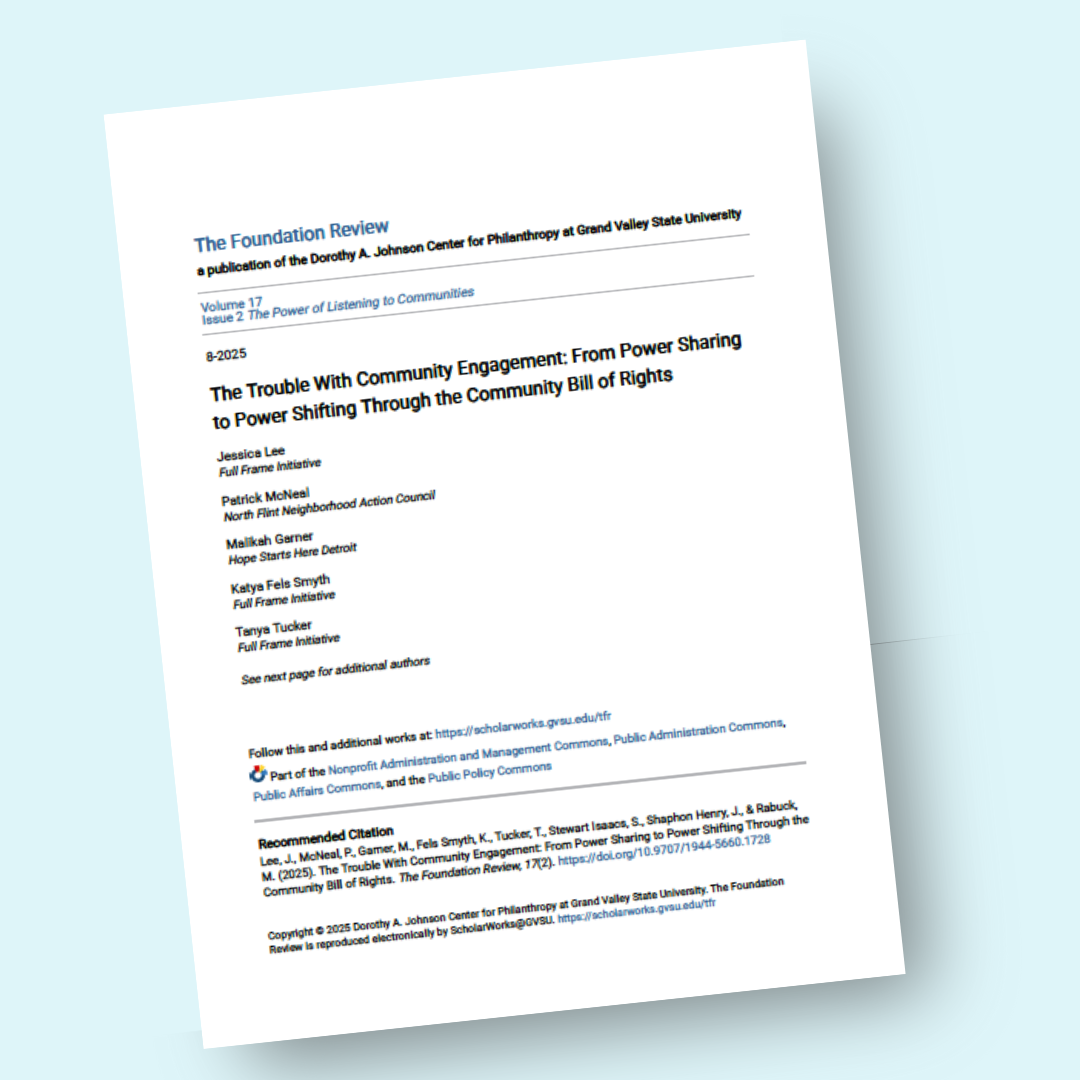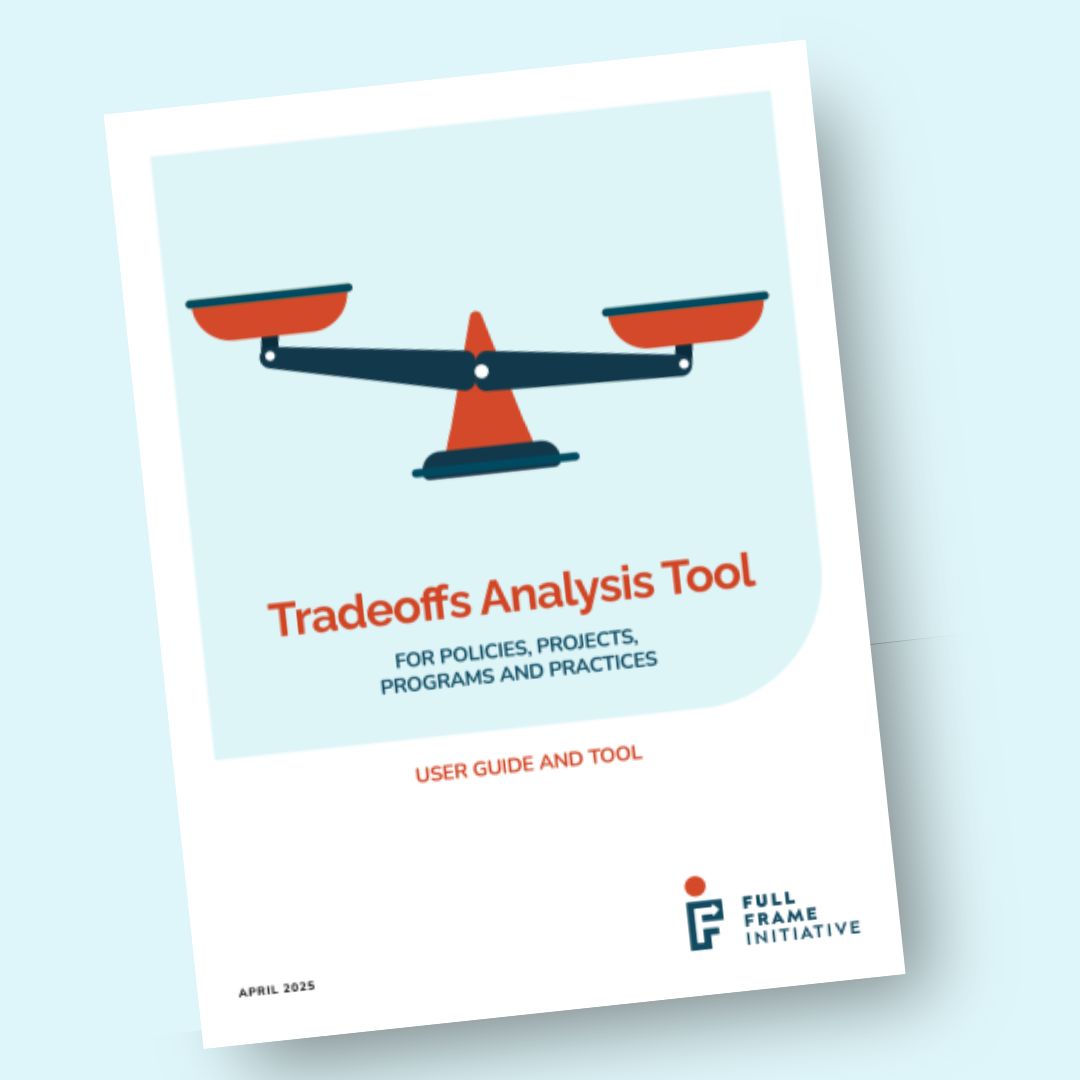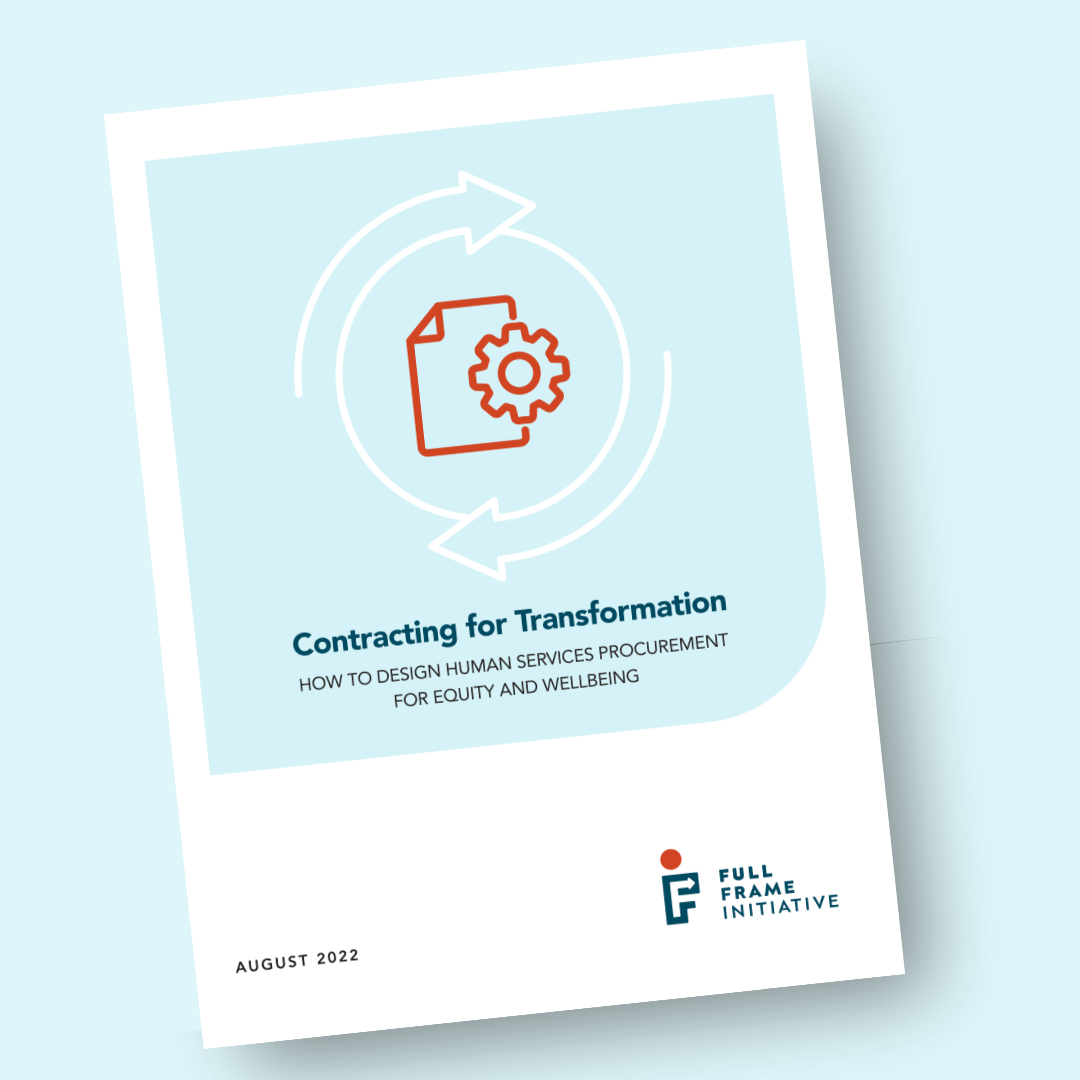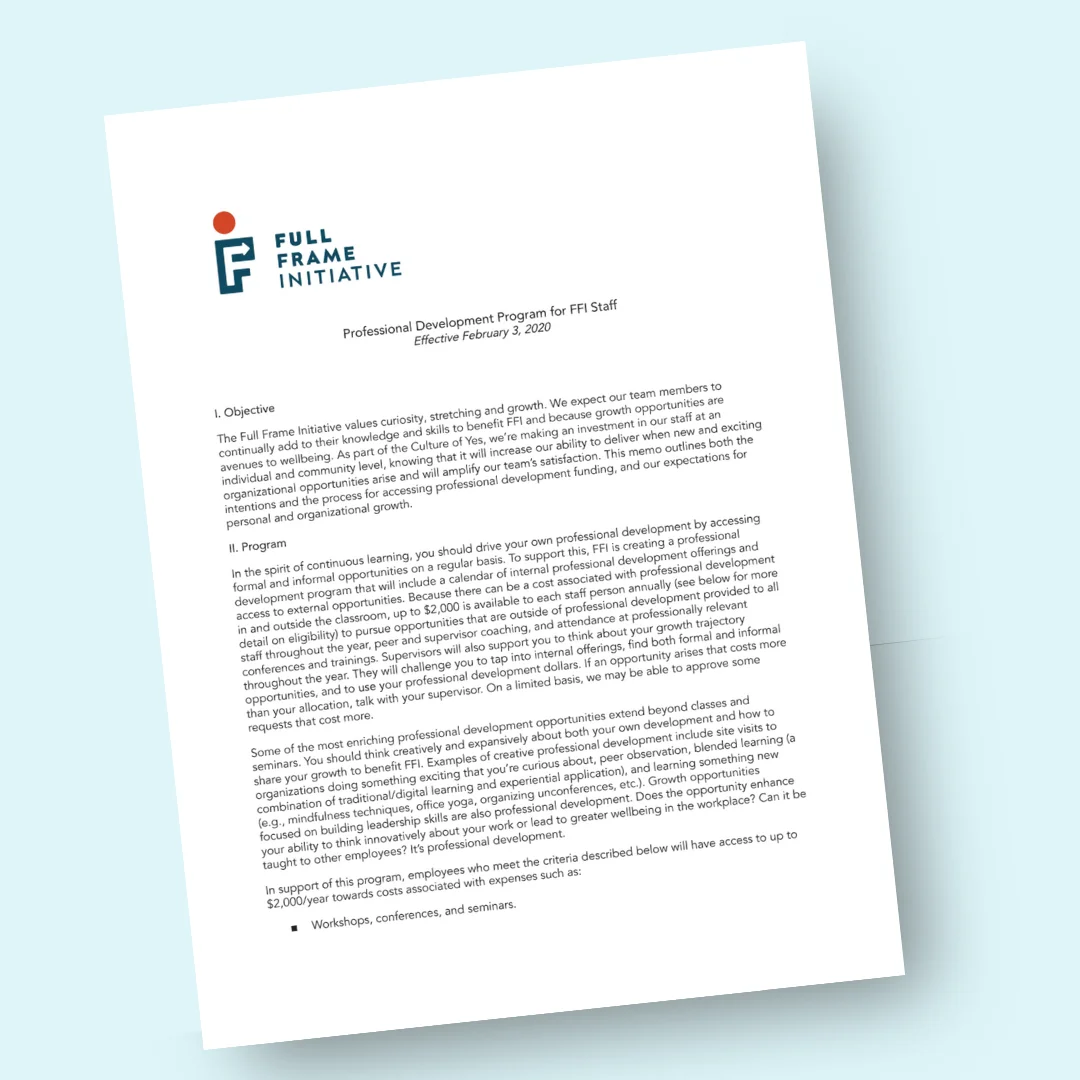
In this peer-reviewed article in Foundation Review, the authors draw on their lived expertise and research to describe how even well-intentioned community engagement efforts can become extractive, tokenizing, and undermine existing community assets. As a meaningful alternative, the authors suggest ‘centering community’ as an orientation to all philanthropic work and the Community Bill of Rights (CBR) as a tool to guide the required change. Drawing on case examples from healthcare, urban planning, and other fields, the authors suggest an imperative for philanthropy to join government and community change agents in using the CBR to shift its approach to one where community is treated not as a stakeholder, but as the primary owner of process, outcomes, and futures.

Use this tool to identify how a specific policy, project, program or practice will impact different stakeholders’ wellbeing, allowing you to anticipate and address unsustainable tradeoffs.

Our toolkit provides guidance for making procurement processes more equitable, and tangible tools for practical use such as score guides and questions for bidders.

This is a policy around professional development that pays attention to staff wellbeing and how staff wellbeing may also benefit the organization's goals.